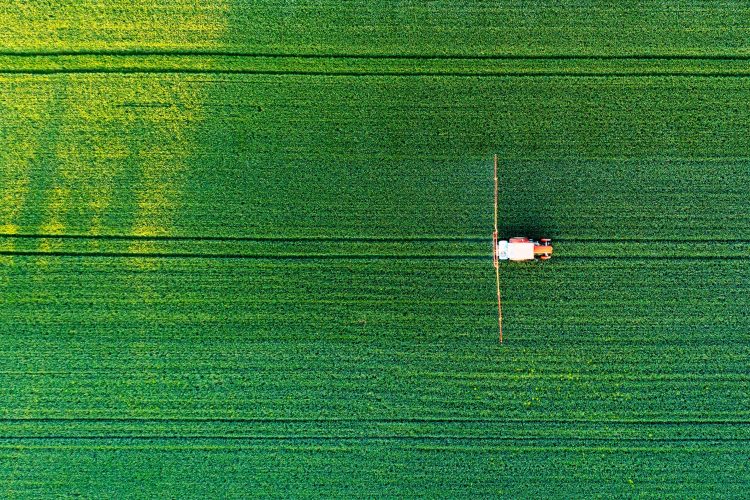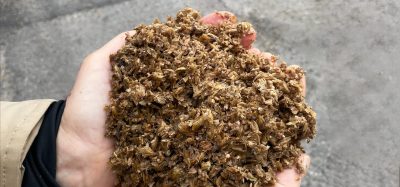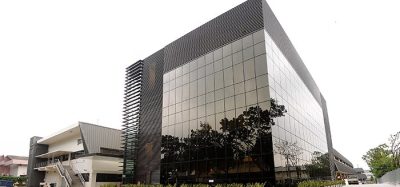Virginia Tech receives grants to advance drone herbicide spraying
- Like
- Digg
- Del
- Tumblr
- VKontakte
- Buffer
- Love This
- Odnoklassniki
- Meneame
- Blogger
- Amazon
- Yahoo Mail
- Gmail
- AOL
- Newsvine
- HackerNews
- Evernote
- MySpace
- Mail.ru
- Viadeo
- Line
- Comments
- Yummly
- SMS
- Viber
- Telegram
- Subscribe
- Skype
- Facebook Messenger
- Kakao
- LiveJournal
- Yammer
- Edgar
- Fintel
- Mix
- Instapaper
- Copy Link
Posted: 13 June 2024 | Grace Galler | No comments yet
Two grants have been awarded to Virginia Tech researchers to support in standardising unmanned aerial systems for herbicide spray applications.


Virginia Tech researchers have received two grants to help in bringing drone spray technology to farmers’ fields, with specific areas of analysis aiming to standardise unmanned aerial systems (UAS) for herbicide spray applications.
The project is being led by Vijay Singh, an Assistant Professor in the College of Agriculture and Life Sciences and Virginia Cooperative Extension specialist at the Eastern Shore Agricultural Research and Extension Center.
Previously, Singh carried out research into UAS sprays, which marked a first in the mid-Atlantic region.
Currently, producers spend between $6 billion to $8 billion each year in the US when it comes to herbicide usage. However, due to repeated usage of the same herbicides over multiple years, an “evolution of herbicide resistance” has occurred.
“Additional practices and strategies to deal with herbicide-resistant species have led to increased costs of $50 to $100 per acre. General crop production cost and use of labor in specialty crops, such as watermelon, have increased in recent years, which acts as a barrier to achieving higher returns,” explained the researchers.
Now, the team has observed that increasing spray efficiency, timely application, and site-specific operations has the power to effectively control weeds and reduce herbicide-usage significantly.
Could applying medical nanotech to crops revolutionise farming?
“Until recently, the use of UAS for weed management was limited to mapping and classification only. However, UAS-based herbicide applications have opened new opportunities to control weeds in areas inaccessible by tractors, in wet fields, and to manage late-season weed escapes,” explained Singh.
The grants are from the National Institutes of Food and Agriculture and amount to $1 million. As part of the projects, UAS technologies will be demonstrated at producers’ fields, and they are set to be provided “firsthand experience”. Following this, the scientists evaluate different spray volumes, droplet sizes, altitude, spray speed, and large-scale spray operations.
The research team has highlighted that the Agriculture and Food Research Initiative grant will evaluate the efficiency of blanket applications of both preemergence and postemergence herbicides in row crops. Meanwhile, the Crop Protection and Pest Management Program grant will focus on watermelon and other vine crops. Spot-spray operation process will be streamlined, and precision and efficiency will be evaluated and both projects involve economic assessment of the proposed technologies.
“The testing of UAS is the first step but the overall goal of these technologies is to automate the process and conduct real-time weed detection and spray applications, which we will achieve in the next few years,” continued Singh.
Also working on the project is Kevin Kochersberger, Associate Department Head in the Department of Mechanical Engineering, John McGee, Professor and Geospatial Extension specialist in the College of Natural Resources and Environment, Shamar Stewart, Assistant Professor in the Department of Agricultural and Applied Economics, and Daniel Martin, Research Engineer with the US Department of Agriculture’s Agricultural Research Service.
These projects further strengthen Virginia Tech’s smart farming initiative by unlocking the potential of drone-spray technology to optimize herbicide application, reduce environmental impact, and assist with climate-smart agricultural practices.
The projects bolster Virginia Tech’s smart farming initiative, aiming to harness drone-spray technology to optimise herbicide application, minimise environmental impact, and promote climate-smart agricultural practices.
Related topics
Environment, Quality analysis & quality control (QA/QC), Research & development, Sustainability, Technology & Innovation









